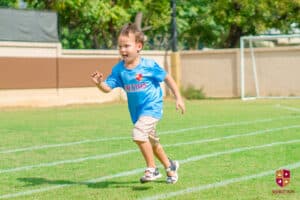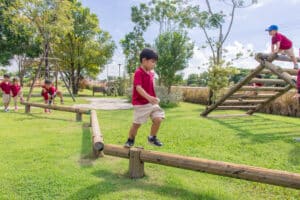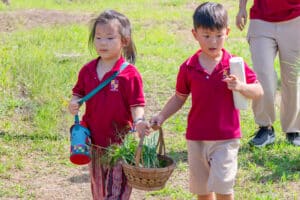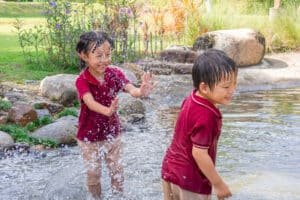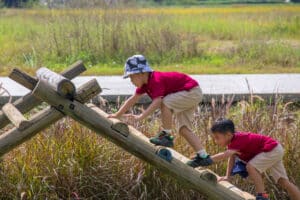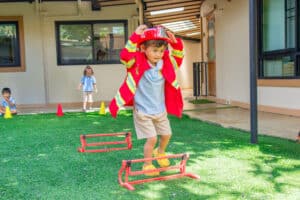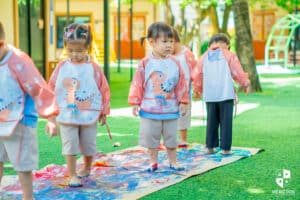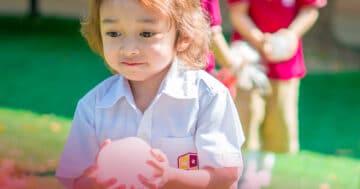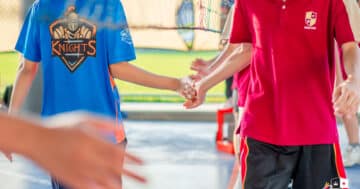Why Outdoor Learning and Play Matter for Children Aged 2–5
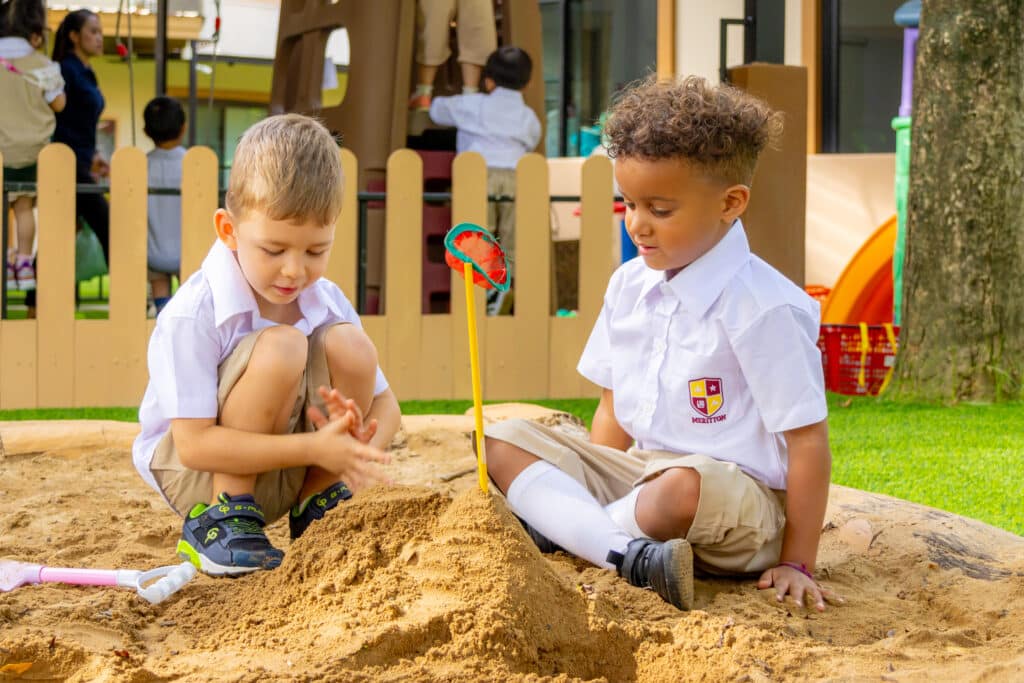
At Meritton British International School, outdoor learning and play are not just opportunities for children to run around. They are a vital extension of the classroom. In the UK, the Early Years Foundation Stage (EYFS) framework recognises the importance of outdoor learning for preschoolers as part of a balanced early childhood curriculum. For children aged 2–5, outdoor environments provide unique opportunities for growth that indoor activities alone cannot offer. The changing seasons, sensory richness of nature, and freedom to move and explore all combine to support every area of learning and development outlined in the EYFS.
Physical Development
Outdoor learning at Meritton British International School gives young children space to be physically active in ways that support their gross and fine motor skills. Activities such as running across grassy fields, climbing low structures, balancing on logs, or navigating uneven ground help strengthen muscles, coordination, and balance. These experiences directly support EYFS physical development goals while promoting lifelong healthy habits.
Outdoor spaces also allow children to feel the breeze on their faces, the warmth of the sun, or the cool shade under trees. Experiencing different temperatures and weather conditions first-hand is not only stimulating but also helps children understand how their bodies respond to the environment, fostering early self-care skills like dressing appropriately for the weather.
Personal, Social and Emotional Development
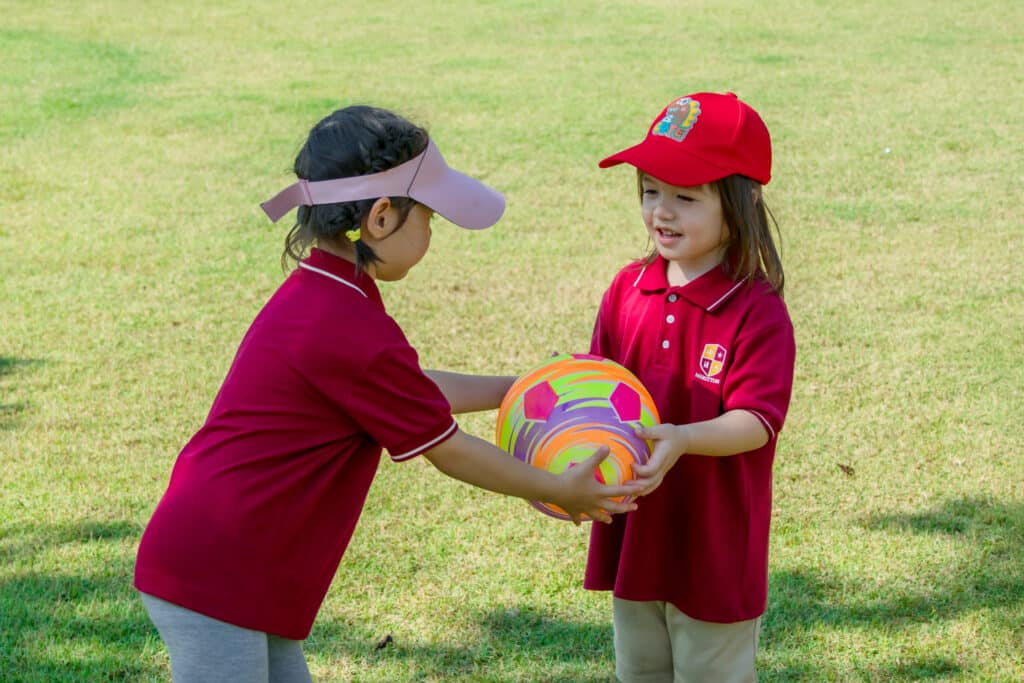
The open-ended nature of outdoor play encourages cooperation, negotiation, and problem-solving. All key aspects of EYFS personal, social, and emotional development. Whether children are building together in a sandpit or taking turns on a slide, they learn to communicate, share, and develop empathy.
Being outdoors also helps reduce stress and supports positive emotional regulation. Fresh air and natural surroundings offer a calming influence, allowing children to experience moments of quiet observation as well as energetic play. This balance nurtures resilience and self-confidence.
Communication and Language
Natural settings are full of opportunities for children to expand their vocabulary and practise expressive language. They might describe the sound of birdsong, the crunch of leaves underfoot, or the coolness of morning dew. Our teachers can prompt conversations about what children see, hear, and feel, creating authentic contexts for learning new words and phrases.
Through outdoor sensory play, children can engage in back-and-forth conversations, ask questions, and develop listening skills.
Understanding the World
Outdoor learning provides children with a direct connection to the natural world. They can observe the changing seasons, explore the life cycle of plants and insects, and experience first-hand how weather and temperature shift throughout the day. These hands-on experiences help them develop early scientific thinking and a deeper understanding of their environment, aligning perfectly with the EYFS goal of helping children make sense of their physical world.
For example, on a sunny afternoon, they might notice how shadows change length or direction. Such observations nurture curiosity and build a sense of wonder and responsibility for the environment.
Expressive Arts and Design
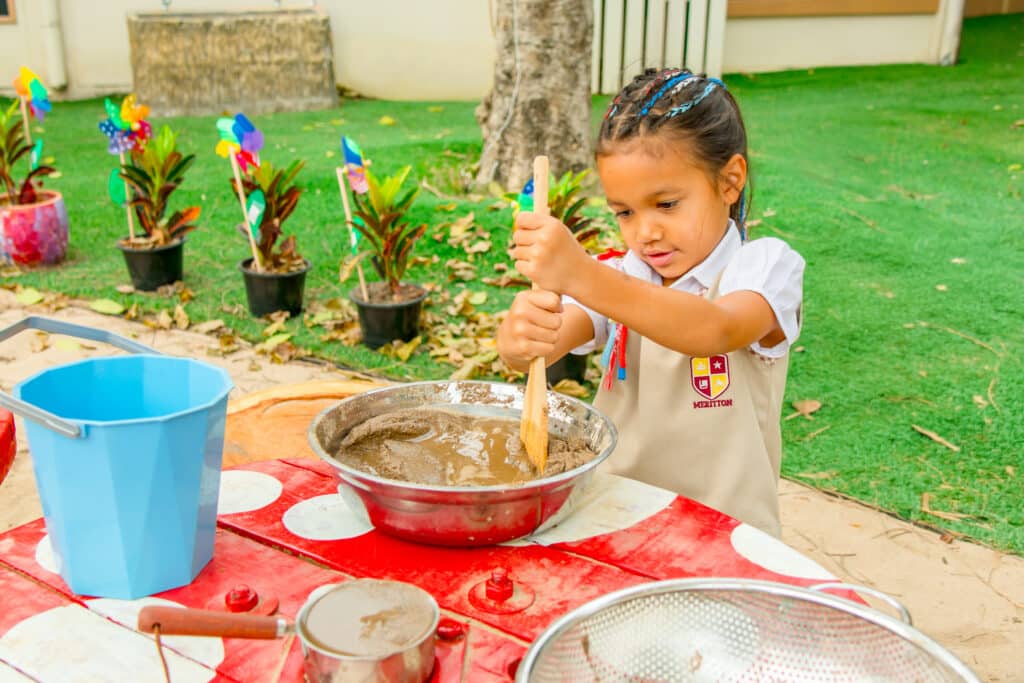
The outdoors naturally sparks creativity. A stick can become a magic wand, a puddle a miniature ocean, and pebbles can be “ingredients” for pretend meals. This type of imaginative play strengthens problem-solving skills and creative expression, which are central to EYFS expressive arts and design outcomes.
Nature also provides endless materials for creative activities: children can use leaves, stones, and twigs to create patterns, build sculptures, or design natural collages. These activities give them a tactile, sensory-rich way to express themselves.
Independence and Risk Management
In the EYFS, this area is known as the Characteristics of Effective Learning. Outdoor play gives children valuable opportunities to test their abilities and manage small, appropriate risks. Climbing a low structure, balancing on a log, or jumping from a step helps them develop resilience, independence and sound judgment. These experiences support the EYFS characteristics of effective learning, including “playing and exploring,” “active learning” and “creating and thinking critically.”
Through regular exposure to outdoor challenges at Meritton, children gradually learn to assess risks, make decisions and build confidence in their own capabilities. These are essential life skills that continue to benefit them well beyond the early years.
Bringing It All Together
The teaching team at Meritton British International School helps children achieve EYFS outcomes across all areas of development by integrating outdoor learning for preschoolers into daily routines. Outdoor classrooms are not just spaces for physical activity; they are living laboratories where children experience the world with all their senses. From feeling the warmth of the sun to exploring textures of sand and leaves, these moments create lasting impressions that support curiosity, creativity, and wellbeing.
When children aged 2–5 spend time outside, they are building the foundations for lifelong learning, resilience, and a deep connection to the natural world.

